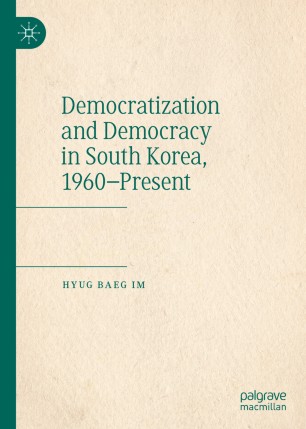

Most ebook files are in PDF format, so you can easily read them using various software such as Foxit Reader or directly on the Google Chrome browser.
Some ebook files are released by publishers in other formats such as .awz, .mobi, .epub, .fb2, etc. You may need to install specific software to read these formats on mobile/PC, such as Calibre.
Please read the tutorial at this link. https://ebooknice.com/page/post?id=faq
We offer FREE conversion to the popular formats you request; however, this may take some time. Therefore, right after payment, please email us, and we will try to provide the service as quickly as possible.
For some exceptional file formats or broken links (if any), please refrain from opening any disputes. Instead, email us first, and we will try to assist within a maximum of 6 hours.
EbookNice Team

Status:
Available0.0
0 reviewsThis book analyses democratization and democracy in South Korea since 1960. The book starts with an analysis of the distinctive characteristics of bureaucratic authoritarianism and how democratic transition had been possible after inconclusive and protracted “tug of war” between authoritarian regime and democratic opposition. It then goes on to explore what the opportunities and constraints to the new democracy are to be a consolidated democracy, how new democracy had changed the industrial relations in the post-transition period, how premodern political culture such as Confucian patrimonialism and familism had obstructed democratic consolidation, and the improvement of quality of democracy. The author compares empirically, from the perspective of a comparative political scientist, political regime superiority of democracy over authoritarianism with regard to economic development. He concludes that “democratic incompetence” theory has been proven wrong and, in South Korea, democracy has performed better than authoritarian regimes in terms of economic growth with equity, employment, distribution of income, trade balance, and inflation.
This book will benefit political scientists, development economists, labor economists, religious sociologists, military sociologists, and historians focusing on East Asian history.